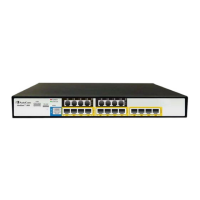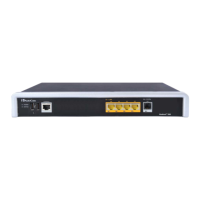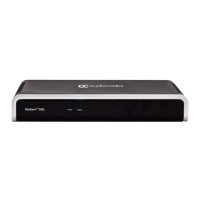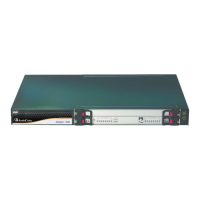Installation & Operation Manual 770 Document # LTRT-92224
Mediant 8000
43.16 SBC Media Handling
Media behavior includes anything related to the establishment, management and
termination of media sessions within the SIP protocol. Media sessions are created
using the SIP "offer"/"answer" mechanism. If successful, the result is a bi-directional
media (RTP) flow (e.g. audio, fax, modem, DTMF). Each offer/answer may create
more than one media session of different types (e.g. audio and fax). In a SIP dialog,
multiple offer/answer transactions may occur, where each may change the media
sessions characteristics (e.g. IP address, port, coders, media types, and RTP mode).
The media capabilities exchanged in offer/answer transactions include the following:
Media types (Audio, Secure Audio, Video, Fax, Text...)
IP addresses and ports of the media flow
Media flow mode (send receive, receive only, send only, inactive)
Media coders (coders and there characteristics used in each media flow)
Other (standard or proprietary) media and session characteristics
Even though the device usually does not change the negotiated media capabilities
(mainly performed by the remote user agents), it does examine the media exchange to
control negotiated media types (if necessary) and to know how to open the RTP media
channels (IP addresses, coder type, payload type etc.).
The device is aware and sometimes active in the offer\answer process due to the
following:
Firewall and security:
• RTP pin holes - only RTP packets related to a successful offer\answer
negotiation traverse the device: when the device initializes, there are no RTP
pin holes open, this means that each RTP/RTCP packets destined to the
device are discarded. Once an offer/answer transaction ends successfully,
an RTP pin hole is opened and RTP/RTCP flows between the two remote
user agents. Once a pin hole is open, the payload type and RTP header
version is validated for each packet. RTP pin holes close if one of the
associated SIP dialogs is closed (this may also be due to a broken
connection).
• Late rogue detection - once a dialog is disconnected, the related pin holes
also disconnect
• Deep Packet inspection of the RTP that flows through the opened pin holes
Adding media functionality to SIP user agents:
• Transcoding
• Broken connection
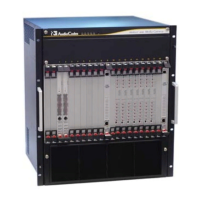
